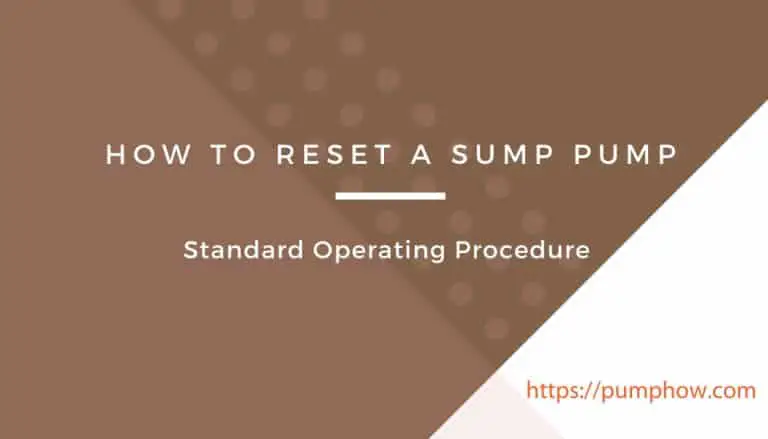When it comes to preventing water damage in your home, there are a few options available, two of the most common being sump pumps and French drains. Both systems have their own unique advantages and disadvantages, and it can be difficult to determine which one is best for your home.
In this article, we will compare sump pumps and French drains, examining their similarities and differences, and help you determine which system is best for your specific needs.
What is a Sump Pump?
A sump pump is a device that is installed in the lowest level of your home, typically in a sump pit, to remove water that has accumulated in the area. The pump is activated when water in the pit reaches a certain level and pumps the water out and away from the home.
Sump pumps are commonly used in homes with basements or crawl spaces that are prone to flooding or water infiltration.
Advantages of a Sump Pump:
One of the main advantages of a sump pump is its ability to effectively pump out water from a basement or crawl space, preventing flooding and water damage. They are relatively easy to install and maintain.
However, sump pumps do have some disadvantages. They require access to electricity to function, they can be noisy, and they may need to be replaced after several years of use.
What is a French Drain?
A French drain is a trench filled with gravel or rock, and a perforated pipe, that is used to divert water away from a specific area. French drains are commonly used to prevent water from pooling around foundations, in basements, or low-lying areas of a yard. They work by allowing water to seep into the trench, where it is then directed away from the area through the pipe.
Advantages of a French Drain:
One of the main advantages of a French drain is that it does not require electricity to function, making it a great option for homes that lack power in certain areas.
French drains can also be used to divert water from a variety of sources and can be used in combination with other drainage systems.
However, French drains can be difficult to install and may require more maintenance over time. They may also not be effective in areas with heavy clay soil.
Comparison of Sump Pump vs. French Drain
1. Cost
When it comes to cost, sump pumps are generally more expensive to install than French drains. However, the cost of maintenance and replacement for sump pumps is generally lower than that of French drains over time.
2. Effectiveness
Sump pumps are generally considered more effective in preventing water damage in basements and crawl spaces. However, French drains are better suited for diverting water away from foundations and low-lying areas of yards.
3. Maintenance And Longevity
Sump pumps require less maintenance over time but they may need to be replaced after several years of use. French drains, on the other hand, may require more maintenance over time, but they have a longer lifespan.
4. suitability for different types of homes and situations
When it comes to suitability for different types of homes and situations, sump pumps are best for homes with basements or crawl spaces that are prone to flooding or water infiltration. French drains, on the other hand, are better suited for homes with water pooling around foundations, in basements, or low-lying areas of a yard. They are also great for homes that do not have access to electricity in certain areas.
When Should You Use A Sump Pump Or A French Drain
Some specific examples of when a sump pump may be most appropriate include:
- Homes with a basement or crawl space that is below the water table or is prone to flooding.
- Homes with a history of water infiltration or flooding in the basement or crawl space.
- Homes that are located in areas with heavy rainfall or high water table.
Some specific examples of when a French drain may be most appropriate include:
- Homes with a yard or landscape that has poor drainage or is prone to pooling water.
- Homes with a basement or crawl space that has a high water table or is prone to water infiltration, but does not have access to electricity in the area.
- Homes that are located in areas with heavy clay soil, where traditional drainage systems may not be as effective.
- Homes that have frequent water infiltration in the foundation area, French drain can be installed around the foundation to redirect water away from the house and prevent water damage.
It’s important to note that these examples are not definitive and a professional assessment should be done to determine the best solution for specific case.
Alternatives To Sump Pump or French Drain
Yes, there are alternative solutions to sump pumps and French drains for preventing water damage in your home. Some of these alternatives include:
1. Interior Drainage Systems:
These systems are designed to channel water away from the foundation and into a sump pump or French drain, preventing water from entering the basement or crawl space.
2. Exterior Drainage Systems:
These systems include gutters, downspouts, and surface grading to channel water away from the foundation and prevent water from pooling around the house.
3. Waterproofing Membranes:
These are applied to the exterior of the foundation or basement walls to prevent water from seeping in.
4. Moisture and Humidity control:
This include the use of dehumidifiers, air purifiers and proper ventilation to control the humidity levels in the basement or crawl space, this will help to prevent mold growth and dampness.
5. Waterproofing paint:
This can be applied to the interior of the basement or crawl space walls to prevent water from seeping in and causing damage.
It’s important to note that these alternatives may not be effective in all cases and a professional assessment should be done to determine the best solution for specific case. These alternatives can also be used in conjunction with sump pumps and French drains for added protection.
Wrapping Up
In conclusion, sump pumps and French drains are both effective systems for preventing water damage in your home, but they have their own unique advantages and disadvantages.
Sump pumps are more effective in preventing water damage in basements and crawl spaces, but they require access to electricity to function and may need to be replaced after several years of use.
French drains are better suited for diverting water away from foundations and low-lying areas of yards, and they do not require electricity to function, but they may require more maintenance over time.
Ultimately, the best system for your home will depend on your specific needs and the layout of your property. It is recommended to consult with a professional to determine the best solution for your home. This way, you can make an informed decision and have peace of mind knowing that your home is protected from water damage.






